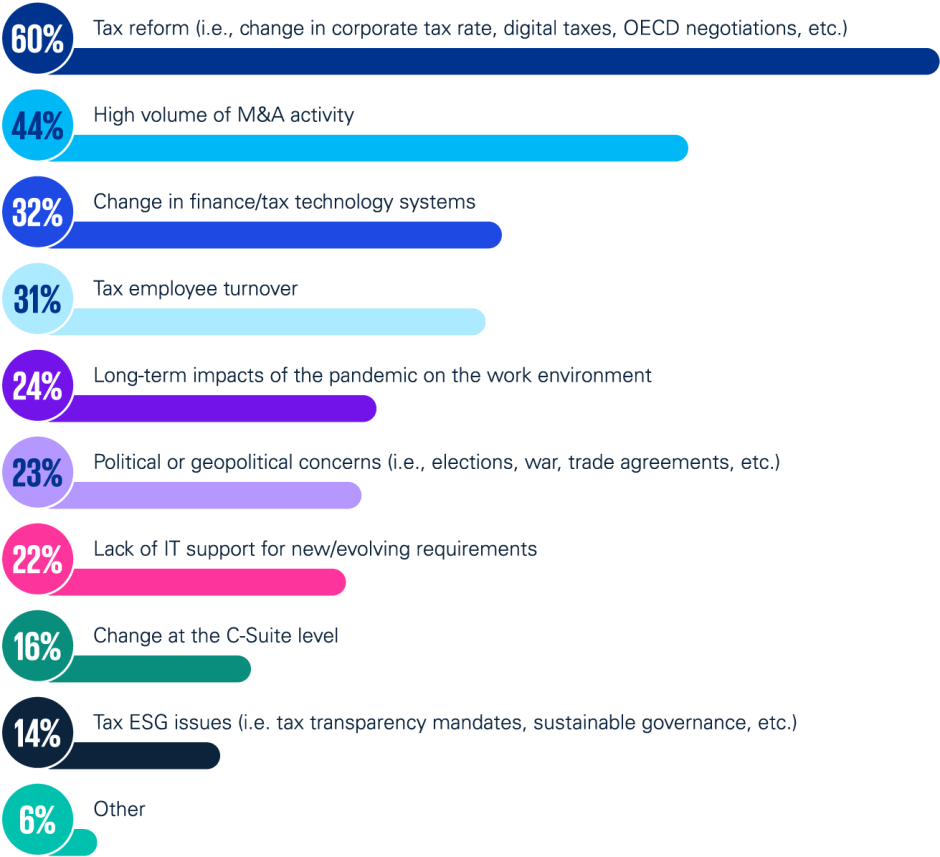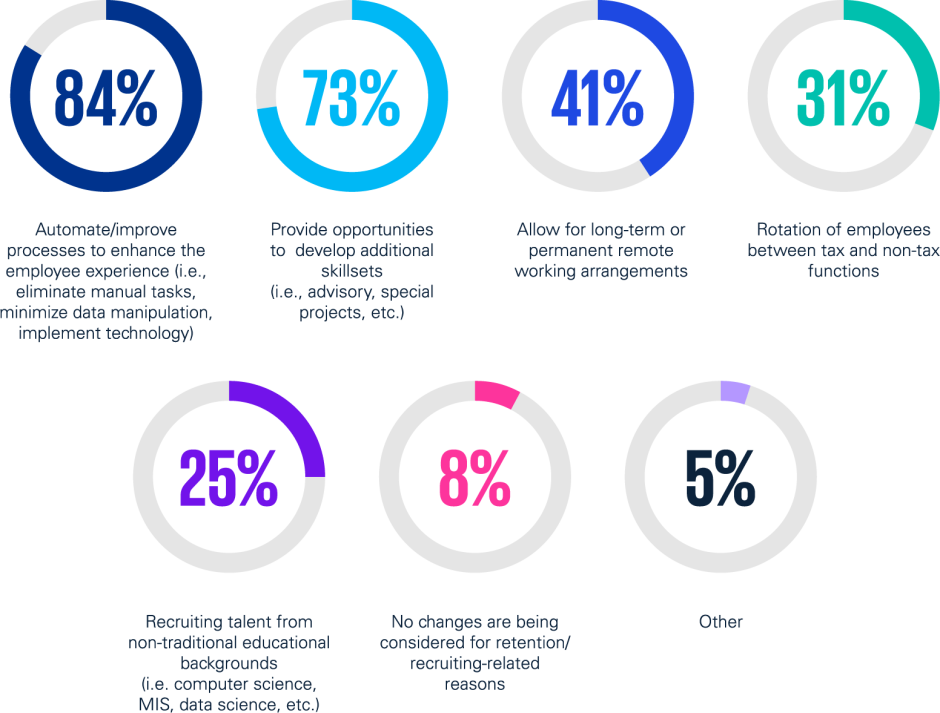Managing today and transforming for tomorrow
Seasoned tax leaders make key decisions every day to evolve their tax function and keep pace with unprecedented pressures, disruptive technological advancements, heightened compliance obligations and more — all while seeking to demonstrate value within the organization and beyond.
For tax executives of multinational organizations, benchmarking against comparable tax functions can be a powerful tool for reflecting on your organization's current position and planning how to prepare for the future. To help, KPMG International conducts an ongoing survey of the tax functions in multinational organizations around the world. The data gained offers insights into tax functions globally and how they are evolving in their structure, governance, priorities and performance measures, through the use of technology and more.
About the survey
KPMG International’s Global Tax Function Benchmarking Survey charts the evolution of leading tax functions and identifies operational benchmarks for high-performing tax teams.
The selected findings in this summary report are based on a survey of almost 200 leaders in charge of tax policy and operations of companies in all major sectors, with participants from 22 jurisdictions worldwide.
Over 65 percent of respondent organizations have more than US$5 billion in annual revenue or turnover. About 90 percent have global tax functions serving operations in multiple countries/jurisdictions.
What do tax leaders from around the world have to say?
Structures and resources
From geopolitical turmoil and the pandemic’s long-term effects on the future of work to the challenges of technological transformation, today’s tax functions face disruption on all sides. At the same time, they’re under intense pressure internally to cut costs, improve efficiency and add more value.
Which of the following disruptors have had the greatest impacts on your organization within the last year?

Tax functions of the future
An efficient and effective tax function is structured to ensure that accountabilities are clear, the right mix of dedicated and shared resources are available, and standardized processes and technologies are leveraged to improve consistency, quality and efficiency.
Are you considering any of the following to attract and/or retain tax talent?

Main takeaways from the survey:
- International tax reform, surging M&A activity and tight markets for tax talent are the three biggest disruptors affecting tax functions today.
- Most tax functions still fall within the finance function, although a significant proportion are independent. Only 2 percent of heads of tax report to the CEO directly.
- Survey results confirm a long-term trend that has seen tax functions’ priorities shift from reactive compliance to proactive value creation.
- More respondents said their tax function’s primary strategy is most closely aligned with value creation than those who said their strategies are aligned with risk reduction or cost minimization.
- In the next 5 years, most companies expect to increase their number of FTEs, as well as their use of co-source resources from shared service centers, global business services or centers of excellence.
- With employee turnover among the top three disruptors facing respondent organizations, many of them are stepping up their efforts to attract and retain tax talent.
- Upgrading the tax function’s skillsets is also on the agenda for many of the respondents, with strategic thinking the most-sought skill by far, followed by tax technical skills and team management.
Special focus reports
To accompany the 2023 Global Tax Department Benchmarking Report, we zero in on the data through special reports taking on the lens of technology and data, ESG and private companies.
Sector reports
In addition, we dive into six sectors to provide at-a-glance highlights into each sector's structure and resourcing, performance measurement and metrics, use of technology and data, and initiatives supporting ESG.













